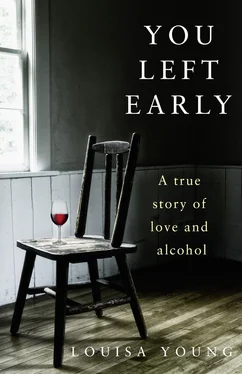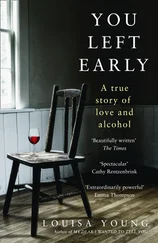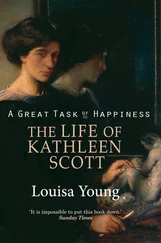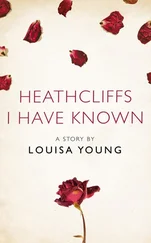So, practically the only thing my memory got right was that it was Emma’s party, it was Primrose Hill, there was a taxi and skinheads. I’m really sorry not to have looked at the notebook for thirty-five years, not to have had the chance to read it to him, and have that ‘I wasn’t a bastard! You weren’t a fool!’ conversation, in which he would have got to say it was all my fault. How he would have laughed.
And then I think again. Well. When, exactly, did I rewrite this history? Was I, perhaps, lying to my notebook, with all that cavalier one-night-stand stuff? Was that my pride? The ‘I know he won’t want me so I’ll not want him first’ approach?
I have no idea. But yes, of course that is possible. Probable, even.
Perhaps it was after the dinner that he didn’t ring.
And now I’m rewriting it all over again; anecdotalising, shifting perspectives on long ago, making excuses, looking for reasons, searching for meaning, wishing.
They say you don’t remember what people said, or what they did, but you remember how they made you feel. I would adjust that a little. You remember that they made you feel.
*
There’s his phone number in the back of a notebook: 720 5399. But I didn’t see him for a few years. Tallulah broke up with Simon and moved to New York; I was half in love with loads of other people.
There’s another party I do remember: Oscar Moore’s, in a snooker club in King’s Cross: very dim and low-ceilinged, smoky and so forth as things were then. Robert was wearing a Wigan Rugby League rosette: cherry red, though I was not familiar with the term then. In a move of pure attention-seeking, I stole it off him. He was quite drunk in a cheerful way and didn’t really notice, until he saw that I had it pinned to the back pocket of my jeans, whereupon he chased me all round the room demanding to know why I had never told him of my passion for rugby league, and Wigan in particular, with not the foggiest that it was his rosette I was sporting, and that I was trying, with considerable lack of either clarity or effect, to express thereby my deep attraction to him.
Anyway, he left, with a group of others, and I stood on a rainy corner in King’s Cross with the rosette. I think that’s what happened.
Chapter Three Chapter Three Chapter Four Chapter Five Chapter Six Chapter Seven Chapter Eight Chapter Nine Part Two 2003–05 Chapter Ten Chapter Eleven Chapter Twelve Chapter Thirteen Chapter Fourteen Chapter Fifteen Part Three 2005–07 Chapter Sixteen Chapter Seventeen Chapter Eighteen Chapter Nineteen Part Four 2007–09 Chapter Twenty Chapter Twenty-One Chapter Twenty-Two Chapter Twenty-Three Chapter Twenty-Four Chapter Twenty-Five Chapter Twenty-Six Part Five 2010–12 Chapter Twenty-Seven Chapter Twenty-Eight Chapter Twenty-Nine Chapter Thirty Chapter Thirty-One Chapter Thirty-Two Chapter Thirty-Three Chapter Thirty-Four Chapter Thirty-Five Part Six 2012— Chapter Thirty-Six Chapter Thirty-Seven Chapter Thirty-Eight Chapter Thirty-Nine Chapter Forty Chapter Forty-One Chapter Forty-Two Chapter Forty-Three Chapter Forty-Four Chapter Forty-Five Appendices Footnotes Acknowledgements About the Author Also by Louisa Young About the Publisher
London and Wigan, 1970s
A grand piano’s feet take up only a tiny area: three indentations in the carpet, each the size of a conker, cradling a brass ball clad in a brass foreskin attached at an unlikely angle, like a stallion’s ankle, to a rising pillar of polished hardwood. Very small, to hold so much weight, and cover so much area: a superior crate the shape of Africa, hollow yet full. With the solid wing raised it shows the heartstrings within, laid in green felt across swirls of miniature golden architecture, and the internal teeth, the hammers coming up from below, sharks from the darkness to bite and bump the strings; dampers above swooping down to see them off every time.
Robert’s Bechstein, as long as Rachmaninoff was tall, his father’s before him, lives with me now. (I smile as I write that. To Robert, saying a thing ‘lived’ somewhere was an unforgivable anthropomorphic poncey fuckin’ southern bourgeois affec ta tion.) Underneath it are boxes and suitcases containing the entire history of Robert’s family. It has been my job to poke around in them, sorting things out. I find a brown paper-covered booklet, costing 30p, 15p if sold on Saturday only: the programme of the Wigan and District Competitive Music Festival, 1972, affiliated to the British Federation of Music Festivals, of which Her Majesty the Queen is patron. It smells of coal-dust and rain, and opens with a message from the mayor, who with the mayoress hopes to see the festival well supported. It lists the patrons, the areas which count as ‘local’ – Abram, Aspull, Billinge, Ince, Orrell, Standish, Skelmersdale, Holland, Chorley. Perhaps it is in fact these place names which smell of coal-dust and rain. It lists the scale of marks (for piano: accuracy of notes and time, technique, fluency, pace, touch, expression, interpretation); the trophies and medals available and who they are in memory of, the general regulations, appreciations, thanks, and the policy for receiving suggestions. There are ninety-nine classes, with up to twenty-five entrants in each. Choirs, recorder solo, folksong, violin, instrumental ensemble, organ, sight-reading, girls’ vocal duet. Thirty-six ten- and eleven-year-olds play ‘Ship Ahoy!’ by Arthur Pickles on the piano.
In Pianoforte Solo (ages thirteen–fifteen), Robert Lockhart, turned thirteen a week earlier, plays Debussy’s 2nd Arabesque, and comes first with 91 points. He wins £1.65, and a stiff certificate with a gold, red and green coat of arms. The following night he comes back to hear Pianoforte Solo (open), and marks what he hears. His marks are a little harsher than the adjudicators’ and his observations, in tiny blue biro, are precise. Betty Wilson was slightly too temperamental in her Dohnányi; Richard Eastham lost all movement in his La Fille aux Cheveux de Lin . Alison Cratchley’s rubato was not up to scratch, though otherwise her Bartók was superb. ‘Not delicate,’ he writes. ‘Dotted notes not clear’; and ‘Too much Chopin style for Bach’.
I have Robert’s little red Letts diary for 1969, when he was ten: lists of rugby players in pencil, and a few entries in splatty blue fountain pen: ‘Grandpa just out of bed been ill. Grandma in bed now.’ ‘Play with train practise putting hippy wig on.’ I have photographs: tiny 1960s black-and-white ones with scalloped edges, carrying all the freight of the out-of-focus faded technology of the past. There he is: a fat baby in incredibly tidy clothes with smocking across the front, chortling. With an ice cream, in Blackpool. Aged about seven on Coniston Avenue in Wigan, with a cricket bat and knobbly knees under baggy shorts. Hurtling towards a finishing line, when he was the second fastest boy in Wigan. With his four plastic horses hitched up to the Bonanza covered-wagon playset. There at the piano with his father, John.
‘My parents, John and Pat, were deemed to be a glamorous couple in their lower middle class (for want of a better term) milieu,’ Robert wrote, much later, in his rehab papers. ‘He a travelling salesman with a souped-up Ford Anglia, she a hairdresser.’ John, charismatic, grumpy, lovable and extremely musical, developed a form of agoraphobia which rendered him incapable of leaving his home town. If he drove ten miles from the town centre he would start shaking, and have to turn around. It happened once during an outing to Manchester to see a special railway yard, for which permission had had to be sought. Robert and his friends were very excited to go, but by the time they got to Longsight Depot John had what we would now call a panic attack; Robert was embarrassed, his pals in the car didn’t know what to say.
Читать дальше












